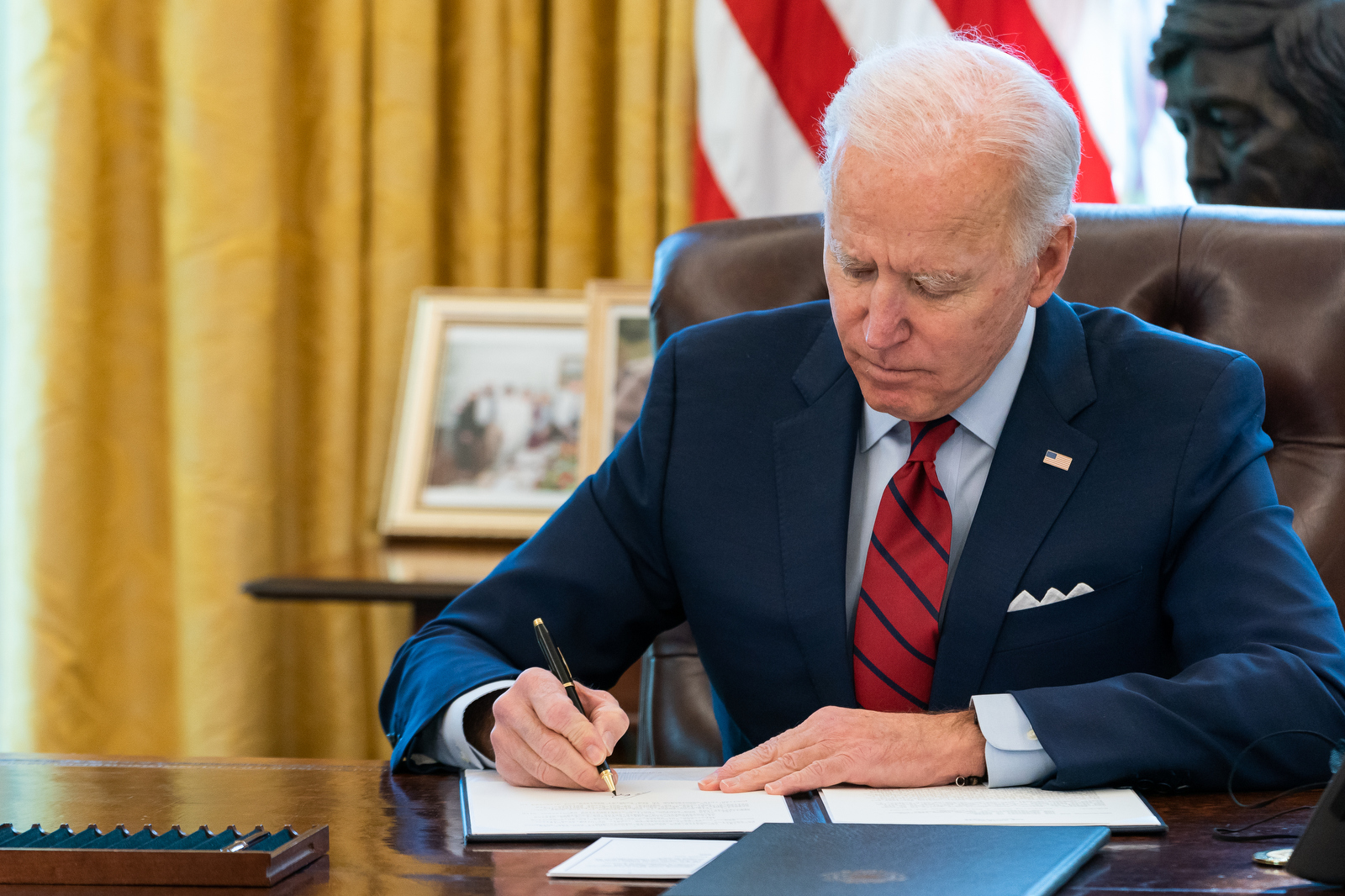President Biden Poised to OK Massive Broadband Investment
NTIA, rather than FCC, will take lead in oversight

The smarter way to stay on top of the multichannel video marketplace. Sign up below.
You are now subscribed
Your newsletter sign-up was successful
Broadband fans were bringing out the pom-poms Monday (Nov. 15) in anticipation of President Joe Biden’s scheduled 3 p.m. (ET) signing of the $1.2 trillion infrastructure package that passed the Congress last week.
C-SPAN will be carrying the event live.
Also: House Passes Infrastructure Bill with Broadband Billions
One thing to look out for is the prominence of Vice President Kamala Harris, who was deputized to head up the universal broadband initiative, in Monday's signing ceremony. The White House has been pushing back on a story Sunday night by CNN suggesting her staff feels she is not getting enough visibility.
Late Sunday, the president named former New Orleans Mayor Mitch Landrieu to oversee the infrastructure buildout, including broadband.
The bill includes about $65 billion for broadband deployment and uptake, including for rural and diverse communities, to go along with the billions of dollars more the Federal Communications Commission has already been handing out via previous COVID-19 relief legislation targeting schools, libraries, lower-income residents and telehealth providers.
Commerce Secretary Gina Raimondo has said that investment should be enough to provide the universal, affordable and equitable high-speed broadband service that Biden has promised, though wireless operators — the infrastructure money is targeted at fiber broadband — say it will take a lot more investment in mobile wireless broadband to truly close the divide.
The smarter way to stay on top of the multichannel video marketplace. Sign up below.
The legislation also mandates a broadband “nutrition label” of sorts, so consumers can know what speed and quality of service they are getting at which price with what fees attached.
While the FCC has been the lead in previous broadband subsidy programs via its Universal Service Fund, the Commerce Department’s National Telecommunications & Information Administration will oversee the vast majority ($48 billion) of the new funding. Unlike the FCC, NTIA is not an independent agency but instead the President's chief telecom policy adviser.
“This is a big deal,” said Joshua Stager, deputy director of New America's Open Technology Institute. “Today’s law is the strongest action to close the digital divide that Congress has ever taken. … Importantly, the law embraces a comprehensive understanding of the digital divide by investing in broadband access, affordability, and adoption. This approach is both historic and holistic.
“We are especially grateful that the law mandates the creation of a broadband nutrition label, which OTI first proposed in 2009,” he added.
Stager took a shot at some broadband providers while putting in a plug for confirming FCC Democratic nominees.
“[T]he work isn’t over,” he said. “This law must now be implemented in a smart way, without the loopholes that companies like AT&T and Comcast are so adept at driving trucks through. This gargantuan, years-long task is the responsibility of two agencies — the FCC and NTIA — that still lack Senate-confirmed leadership. The Senate must confirm Jessica Rosenworcel, Gigi Sohn and Alan Davidson immediately. It won’t be ‘infrastructure week’ until all three of these leaders are in office.”
Contributing editor John Eggerton has been an editor and/or writer on media regulation, legislation and policy for over four decades, including covering the FCC, FTC, Congress, the major media trade associations, and the federal courts. In addition to Multichannel News and Broadcasting + Cable, his work has appeared in Radio World, TV Technology, TV Fax, This Week in Consumer Electronics, Variety and the Encyclopedia Britannica.

